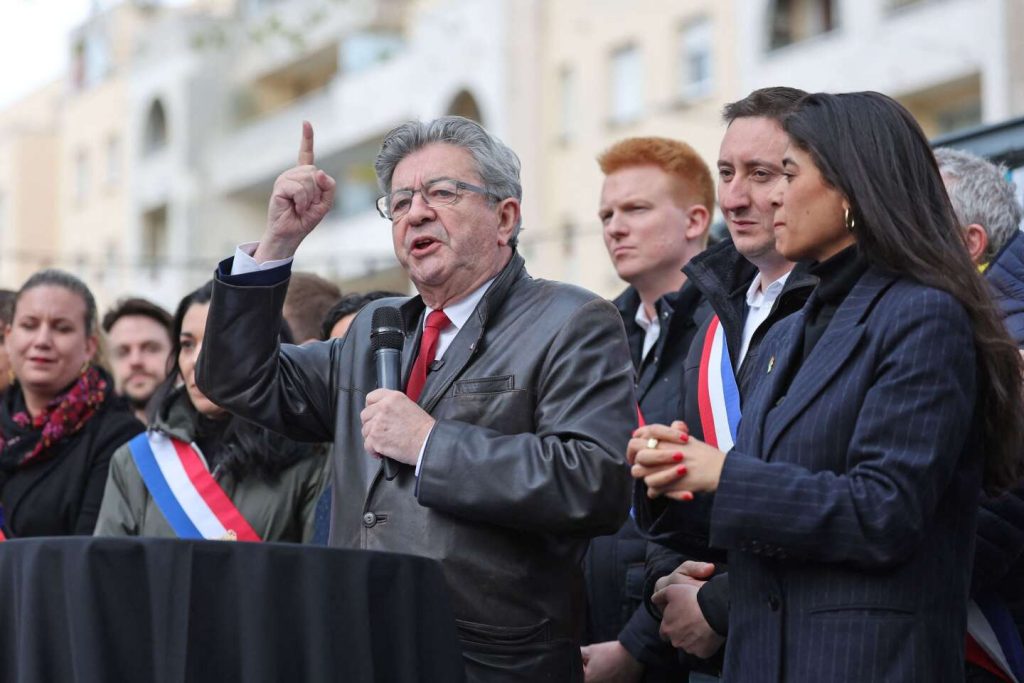Jean-Luc Mélenchon, leader of the La France Insoumise party, held a short meeting on April 18, 2024, in a square in the working-class neighborhood of Moulins in Lille, France. The meeting was attended by approximately 300 to 400 people (1,000 according to La France Insoumise). Mélenchon had been denied the opportunity to speak at the University of Lille after the university’s president cancelled a conference on Palestine that he was scheduled to give with Rima Hassan, a Franco-Palestinian and the 7th on the LFI list for the European elections. He had hoped to relocate the event to a private venue in Lille, but the Prefect of the Nord region, Bertrand Gaume, prohibited this citing concerns about participant safety, police resources being focused on a football match, and a commemoration event at a synagogue in Lille.
Despite the lack of police presence at the square, attendees at the impromptu meeting were not convinced by the reasons cited for the event’s relocation. Some felt that it was a form of censorship and questioned whether freedom of expression still existed in France. One attendee, Corentin, an English student, expressed frustration stating, “Where do we go? Can we still talk about freedom of expression in France?” This sentiment was echoed by Abdelkader, a 77-year-old man who was appalled by the restrictions on discussing such an important issue as Gaza. Even Olivier, a middle-aged industrial designer, expressed concern about what he perceived as increasing censorship in politics and the media.
Rima Hassan, the Franco-Palestinian activist who was scheduled to speak at the event, also criticized the alleged censorship faced by her movement. She described it as a tactic used by those who have failed politically and a violation of freedom of expression. Her comments were brief but impactful, urging attendees to follow the words of Stéphane Hessel, a defender of Palestinian rights, by saying, “Indignez-vous!” The tone of the meeting shifted dramatically from the previous day in Roubaix, where Mélenchon’s speech was characterized by a more moderate tone.
During the meeting, Mélenchon directed strong criticisms at a socialist deputy, Jérôme Guedj, whom he accused of being a coward and a delator for expressing reservations about the logo of Libre Palestine which depicted Cisjordan, Gaza, and Israel as a unified territory. Despite Guedj not calling for the event’s cancellation, Mélenchon attacked him, insinuating questionable motives behind his actions. This shift towards more aggressive rhetoric by Mélenchon occurred in the context of broader support from socialist allies who opposed the Prefect’s decision to prohibit the conference. The conflicting narratives and heightened tensions added a sense of urgency and importance to the impromptu meeting in Lille.


